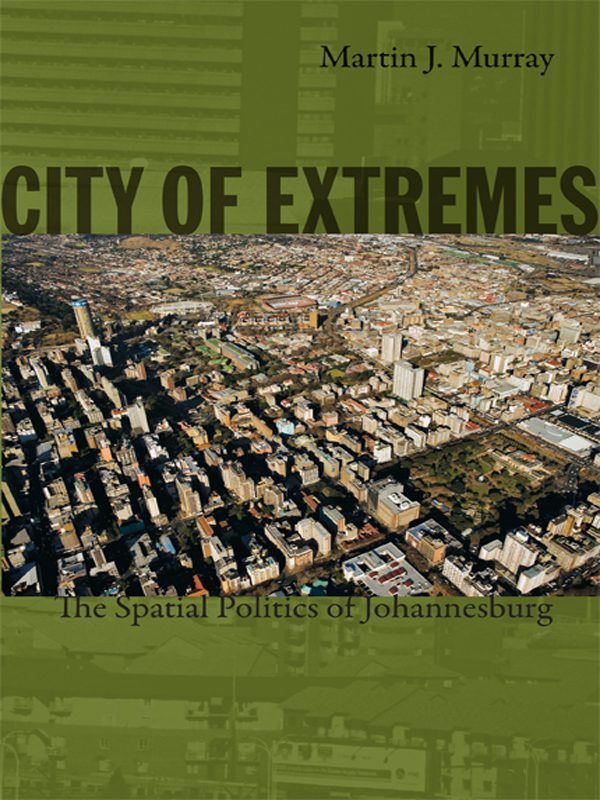City of Extremes: The Spatial Politics of Johannesburg examines the relationship between evolving urban form and the changing built environment of Johannesburg after apartheid and the new modes of spatial management, regulation and control governing the use of urban space.
City of Extremes is a powerful critique of urban development in greater Johannesburg since the end of apartheid in 1994. Martin J. Murray describes how a loose alliance of city builders – including real estate developers, large-scale property owners, municipal officials, and security specialists – has sought to remake Johannesburg in the upbeat image of a world-class city. By creating new sites of sequestered luxury catering to the comfort, safety, and security of affluent urban residents, they have produced a new spatial dynamic of social exclusion, effectively barricading the mostly black urban poor from full participation in the mainstream of urban life. This partitioning of the cityscape is enabled by an urban planning environment of limited regulation or intervention into the prerogatives of real estate capital.
Combining insights from urban studies, cultural geography, and urban sociology with extensive research in South Africa, Murray reflects on the implications of Johannesburg’s dual character as a city of fortified enclaves that proudly displays the ostentatious symbols of global integration and the celebrated “enterprise culture” of neoliberal design, and as the “miasmal city” composed of residual, peripheral, and stigmatized zones characterized by signs of a new kind of marginality. He suggests that the “global cities” paradigm is inadequate to understanding the historical specificity of cities in the Global South, including the colonial mining town turned postcolonial megacity of Johannesburg.

